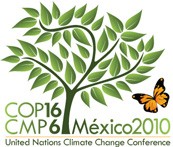Description
The United Nations Framework Convention on Climate Change (UNFCCC) is a framework for intergovernmental efforts to tackle the challenge posed by climate change. The Convention provides a platform for governments to gather and share information on greenhouse gas emissions, national policies and best practices. It entered into force on 21 March 1994.
The Kyoto Protocol is an international agreement linked to the UNFCCC, which sets binding targets for 37 industrialised countries and the European community for reducing greenhouse gas (GHG) emissions. The Kyoto Protocol was adopted in 1997 and entered into force in 2005. Among the 192 ratifying members of UNFCCC, 184 also acceded to the Kyoto Protocol.
The UNFCCC Secretariat is the largest MEA Secretariat: it has a staff of 450 people.
UNFCCC currently offers training programmes for journalists in developing countries, in order to make them more familiar with the issues and problems tackled during international negotiations. There are about thirty journalists participating from developing countries. The project covers negotiations under the Bali action plan, notably financing journalists to attend COP in Poznan and other meetings up to Copenhagen.
Training courses for negotiators are provided by UNEP in cooperation with the UNFCCC:
• Training on general IEL issues organised by the UNEP regional offices and held often in UN cities like Bonn, Geneva, Vienna, Nairobi;
• Preparatory meetings for climate negotiators are usually held before the COP and organised all around the world. These can be short two-day meetings in order to develop a common position but can also be longer preparatory meetings of one month.
About the city of Bonn: a new home (in the old congress) for UN bodies has been created. The UN agencies have a coordination body in Bonn and also have good cooperation with the city of Bonn. The government of Germany has established the Bonn Fund to support UNFCCC meetings held in Bonn. There is a common services unit (for all UN organisations) responsible for the relations with the host countries of the UN and organising meetings of UN agencies heads.

